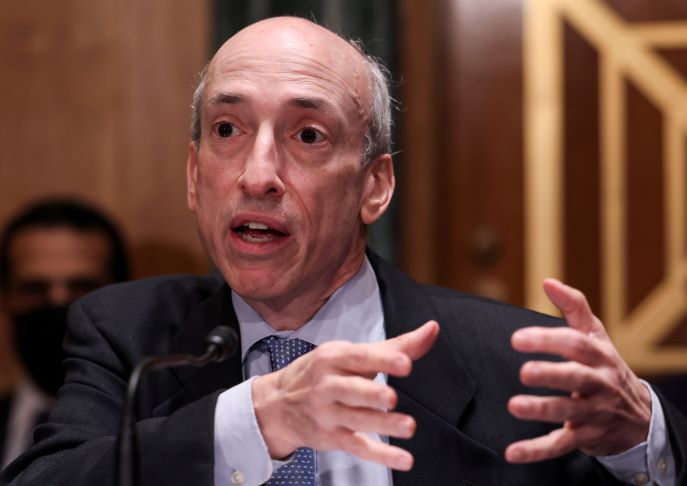Mike Scott reports on how the requirement to report Scope 3 emissions will have far-reaching implications, even in the face of law suits from the likes of West Virginia
After a considerable delay, the U.S. Securities and Exchange Commission (SEC) has finally arrived at the climate disclosure party – and it is going to have a significant impact on U.S. companies.
Its recently released proposals, which are under consultation until May, call for businesses to disclose how they identify and manage climate risks, and how those risks will affect the company; what they are doing in terms of scenario analysis; and how the board oversees climate risk.

The SEC also calls on companies to provide updates on any climate pledges and how they are doing on meeting them, as well as any use of carbon offsets or renewable energy certificates.
Perhaps most importantly, companies with revenues of more than $75 million will have to report on not just their Scope 1 and 2 emissions (those that derive from their own operations) but also Scope 3, which covers emissions from their supply chains and customers. And they are likely to have to do this from 2024, for their 2023 results.
Investors need reliable information to make informed investment decisions
“Investors representing tens of trillions of dollars support climate-related disclosures because they recognise that climate risk can pose significant financial risk to companies, and investors need reliable information to make informed investment decisions,” Gary Gensler, chair of the SEC, told Reuters Events’ Responsible Business USA 2022 conference in April.
“Companies and investors alike would benefit from clear rules of the road. Our role is to bring consistency and comparability,” he said.
Many observers thought Scope 3 would be omitted from the proposal because companies have complained that these emissions are out of their control and difficult to estimate. However, dealing with Scope 3 is seen as essential in helping to meet climate targets.

The proposal has been mostly well received by the environmental, social and governance (ESG) community. “The SEC is finally heeding the calls from institutional investors, companies, regulators and the public,” said Mindy Lubber, chief executive of sustainable investment advocate Ceres.
She said the “thoughtful proposal would allow investors and companies to better tackle climate-related financial risks across investment portfolios and global supply chains, and seize the opportunities that come with acting on those risks.”
The framework, which is closely aligned with that of the Taskforce on Climate-related Financial Disclosures (TCFD), will help to bring the United States in line with other jurisdictions, including the European Union, the UK, Canada, China and Japan.
Now the process is out there, I can’t imagine them un-ringing the bell
But the proposals will require some drastic changes from U.S. companies – finance company MSCI reported that only 28% of companies it analysed recently disclosed Scope 1 and 2 emissions, and just 15% disclosed any portion of their Scope 3 emissions. Ironically, it is the most emission-intensive sectors that are best-prepared for the changes: disclosure rates are much higher in materials (64%), utilities (55%), consumer staples (48%) and energy (47%) than in the least emission-intensive sectors of health care (12%), financials (17%), communication services (18%) and information technology (25%).
“It will be interesting to see how companies respond to the proposals,” says Margaret Peloso, lead sustainability partner at law firm Vinson & Elkins. “Clients are asking, ‘Do I have the controls and processes in place?’ because if the rule is finalised, I won’t have much time to prepare.”
With states like West Virginia threatening to sue the SEC over the plan, “it could be several years before we have clarity on what the requirements are”, she says, but “now the process is out there, I can’t imagine them un-ringing the bell. Companies are facing rapidly evolving investor expectations. The first thing investors are going to do is push companies to disclose.”

Keith Fortson, global head of ESG at integrated risk management provider Riskonnect, agrees. “It feels like the writing is on the wall. There is a convergence of the political, economic and social environments that are all calling for this.”
States and even individual cities may introduce their own requirements, he added, and over time, disclosure is likely to encompass other issues such as water, waste, and diversity and inclusion.
Atul Vashistha, founder of risk intelligence provider Supply Wisdom, says the SEC rules will require companies to delve deep into both their own operations and that of their value chains for climate risks. “Companies will need to disclose their risks at a zip code level … (but) there is still a very big gap when it comes to companies understanding their supply chains.”
There is confusion about what to measure and what disclosure is needed. I hope the SEC can bring some clarity to this
He adds that few companies have set goals for supply chain emissions and even fewer have managed to do this consistently. “There is confusion about what to measure and what disclosure is needed. I hope the SEC can bring some clarity to this. It will help companies recognise upcoming supply chain challenges and in the long run it will make supply chains more resilient and dependable.”
Helpfully for companies, the SEC rule will enter a world full of initiatives and tools to help them provide the information that investors want – and increasingly these are becoming more standardised. Most notable is the International Sustainability Standards Board’s (ISSB) Sustainability Disclosure Standards, which could be ready by the end of the year, at about the same time the SEC rules are finalised.
Like the SEC proposal, they will be closely aligned with the TCFD. That should mean that, although the requirement to disclose climate risks will increase, at least everyone will be disclosing the same information, allowing investors and others to assess how companies are dealing with climate risks as they become more material in years to come.
This article is part of the May 2022 issue of the Sustainable Business Review. See also:
Policy Watch: Renewables and energy efficiency ‘underplayed weapons’ in response to Ukraine
Society Watch: When it comes to cars, few are heeding the IPCC’s plea to curb consumption
Brand Watch: Guterres strikes U.N. panel to ensure businesses ‘walk the talk’ on climate pledges
Why a more inclusive culture in the drinks industry makes business sense
US Securities and Exchange Commission emissions Gary Gensler Mindy Lubber TCFD International Sustainability Standards Board
